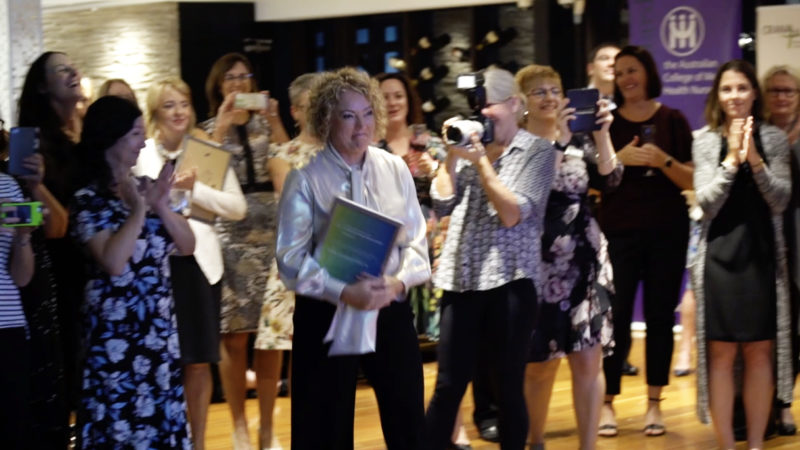La Trobe Rural Health School study for Occupational Therapy Australia identifies practice issues
Almost half a million Australians have served with the Australian Defence Force. Given the high prevalence of physical and mental health conditions and complexity of civilian life adjustment after military service, high-quality occupational therapy services are critical. However, there is limited description of occupational therapy service provision to individuals funded by the Australian Department of Veterans’ Affairs to inform government policy.
A cross-sectional study, led by Professor Carol McKinstry, Professor of Occupational Therapy and Deputy Dean with La Trobe University’s Rural Health School at the Bendigo campus has used an online survey to collect information from occupational therapists providing services to Department of Veterans’ Affairs clients.
The aim of this study was to describe the practice of Australian occupational therapists working with former service members and identify opportunities to enhance practice and policy. Professor McKinstry was instrumental in the development of the occupational therapy course at the La Trobe University’s Bendigo campus and also the establishment of the Rural Health School. She is also the a Board Director of Occupational Therapy Australia.
Participants in the study included 123 Australian occupational therapists residing in metropolitan (47%), regional (28%) and rural/remote (23%) areas. Most occupational therapists (69%) had over 15 years of clinical experience and worked in private practice (87%). Common interventions included home modifications, equipment prescription and assistive technology (77%), goal-oriented rehabilitation (16%) and activities of daily living or function assessments and education (13%). Three themes describing practice issues were identified: (1) Service provision as rewarding yet underfunded, (2) Administrative complexity and lack of understanding of the occupational therapy role and (3) Need for specialist professional development opportunities.
Australian Health Journal spoke with McKinstry about the study, and its conclusions.
Australian occupational therapists are providing a range of services to Department of Veterans’ Affairs clients although mostly relating to physical conditions, states Professor McKinstry.
Her conclusions for the study are that occupational therapy practice with former Australian Defence Force members be expanded to meet their diverse and complex needs. Further research and education is needed to support use of specialist knowledge and interventions. Advocacy by peak associations and policy reform are urgently required to ensure sustainable services, particularly in rural areas.
You Might also like
-
Misinformation impacts routine vaccines
More significant changes in recent years have been health-related misinformation eroding trust in healthcare professionals, leading to people seeking alternative treatments or avoiding medical advice altogether. This can make it more difficult for healthcare professionals to provide effective treatment and care.
Recent vaccines delivered as part of the COVID-19 response, are having a consequential impact on the uptake of routine vaccines.
Australian Health Journal spoke with Dr Paul Griffin, an Infectious Diseases Physician and Microbiologist at Mater Health, and who has been involved in over 150 clinical trials in the field of infectious disease.
Paul talks about the importance of having reputable sources of information that can used to encourage people to understand what is involved in clinical trials and the roles of vaccines.
-
Health Minister’s Awards for Nursing Trailblazers
An ACT nurse dedicated to giving people more dignity and choice in their final days was earlier this week night named the inaugural Health Minister’s Nursing Trailblazer at an awards ceremony in Sydney.
Lord Nigel Crisp, Co-Chair Nursing Now and Australian College of Nursing President, Professor Christine Duffield FACN presented the inaugural Health Minister’s Nursing Trailblazer Award to Nikki Johnston MACN, a Palliative Care Nurse Practitioner based in Canberra at Calvary Health Care’s Clare Holland House.
-
Medical Devices Medical Technology Association of Australia New Content Patients Regulations Training and Career
Ensuring stringent quality standards in the lifecycle of medical devices
Dr Jasjit Baveja is the Associate Director of Policy at the Medical Technology Association of Australia (MTAA), where she oversees regulatory affairs, clinical code of practice, procurement, industry policy, reimbursement, and advocacy. With over 20 years of experience in the medical device regulatory space, Dr Bavej’s expertise lies in providing educational opportunities for regulatory professionals in Australia to ensure continuous learning and professional development. She collaborates closely with the Therapeutic Goods Administration (TGA) to run workshops that provide invaluable experience, networking opportunities, and skill enhancement.



